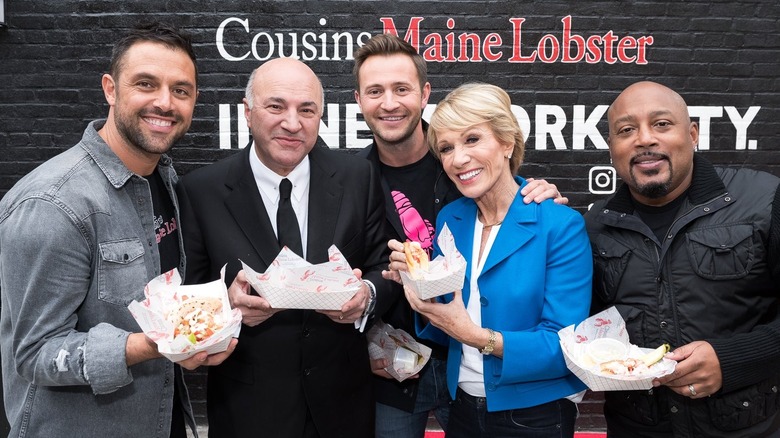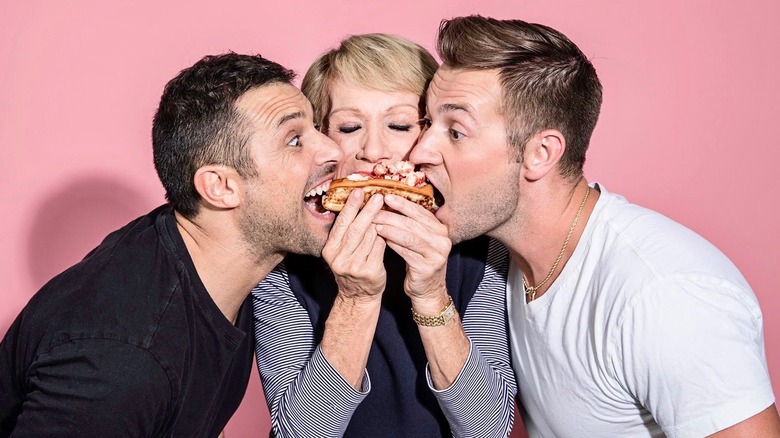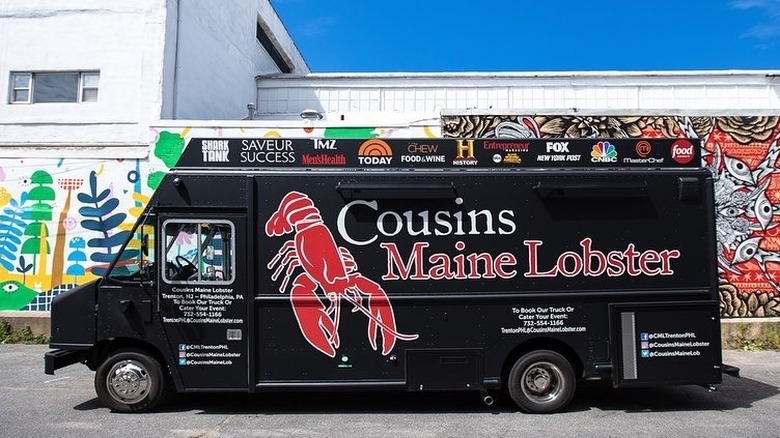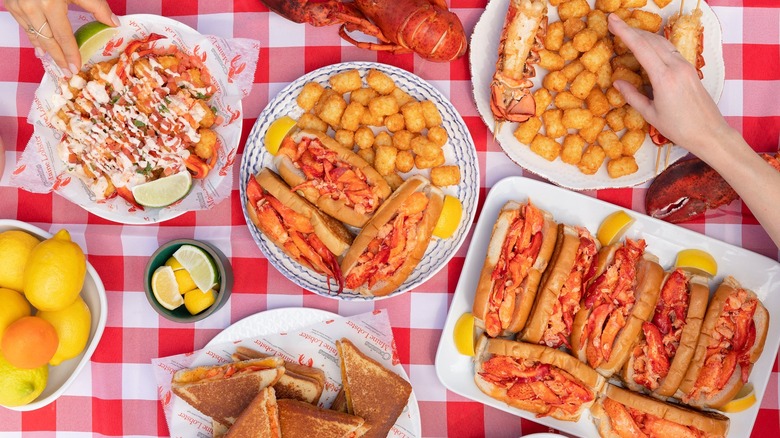Cousins Maine Lobster: Here's What Happened After Shark Tank
Cousins Maine Lobster is a food truck, restaurant, and e-commerce business offering fresh and sustainable Maine lobster that goes from "shore to door" in less than 24 hours. Cousins Sabin Lomac and Jim Tselikis came up with the idea for the food truck that started it all when Tselikis visited Lomac in Los Angeles, and the two discussed business opportunities over a nostalgic video game session.
They realized that amid the booming food truck industry in Los Angeles, which was bringing all kinds of cuisine to the area, the city was still missing out on the foods and traditions they experienced growing up in Maine together. In 2012, the duo opened a single food truck in Los Angeles that served fresh lobster rolls the way they remembered them, and people have been lining up at their doors since opening day.
The company has a unique journey into the world of "Shark Tank": the show's producers were actually regular customers at the food truck since those first few weeks. After receiving the opportunity to appear on the show, the founders turned it down — not once, but twice — before they finally felt ready to meet the sharks. The third time's a charm because the cousins walked away with Barbara Corcoran as the newest member of the family.
One shark took a bite of the lobster
"An executive producer called and said, 'You guys will be making the worst decision of your lives if you don't do this,'" said Jim Tselikis in an interview with QSR. The new business partners listened, and they appeared on the show in Season 4, Episode 6 — just two months after opening and with $150,000 in sales under their belts.
Cousins Maine Lobster went into the show asking for $55,000 in exchange for 5% of the company, intentionally targeting Barbara Corcoran due to her history with food industry investments. After taking some heat from the other sharks — Mark Cuban accused them of "talking all kinds of nonsense," and Kevin O'Leary said what they were asking for was "outrageous" — the cousins ultimately struck a deal with the shark they came for.
Barbara Corcoran offered the money for 17%, and Lomac and Tselikis eventually negotiated her down. Ultimately, the cousins walked away with a $55,000 investment from Barbara Corcoran for 15% equity in the business.
How Shark Tank changed everything
Cousins Maine Lobster was already on a path to success before "Shark Tank," but after the show's exposure and the partnership with Corcoran, the company truly took off. With Corcoran's connections and mentorship, Cousins Maine Lobster gained press on a plethora of major networks, from "The Today Show" to "Master Chef," and opened three more food trucks in the next year and a half.
The business only continued to grow exponentially from there. By 2016, the company expanded to 20 food trucks in 13 locations and opened a fast-casual restaurant in Los Angeles, achieving $20 million in sales. And beyond that, they developed the e-commerce wing of their business — shipping live lobsters, lobster meat, steaks, and prepared seafood directly to homes throughout the country.
Six years after the show, Cousins Maine Lobster officially went international in Taiwan and continued to expand with a franchise model — and the cousins even released a book in 2018. In 2021, the company's sales increased by 37% year-over-year. Today, Cousins Maine Lobster consists of over 50 food trucks and brick-and-mortar restaurants across 45 cities and has reached over $50 million in annual sales.
Why Cousins Maine Lobster continues to thrive
From catering to mobile apps to franchising, the growth continues for Cousins Maine Lobster. Thanks to its fresh product that sustainably brings Maine specialties to the rest of the country and its true "family business" mentality, people everywhere are still lining up for lobster rolls and fresh seafood at CML food trucks and restaurants.
The company has particularly experienced significant success in terms of franchisee growth, partly due to the process they've developed to distribute fresh lobster across the country. According to QSR, the product is delivered from the company's fishery partner in Maine to each and every franchise location in the same way. "We make sure that the food is coming to them cooked and prepared the same way, same quality, same specs from our teams," explained Tselikis, "...so that the experience for the customer is the same every time."
The Maine lobster industry is a model of sustainability, and that makes a difference for customers. Successfully bouncing back after a fated COVID dip, Cousins Maine Lobster plans to continue their growth, expanding their presence into markets from Chicago to Orlando to the Pacific Northwest.




